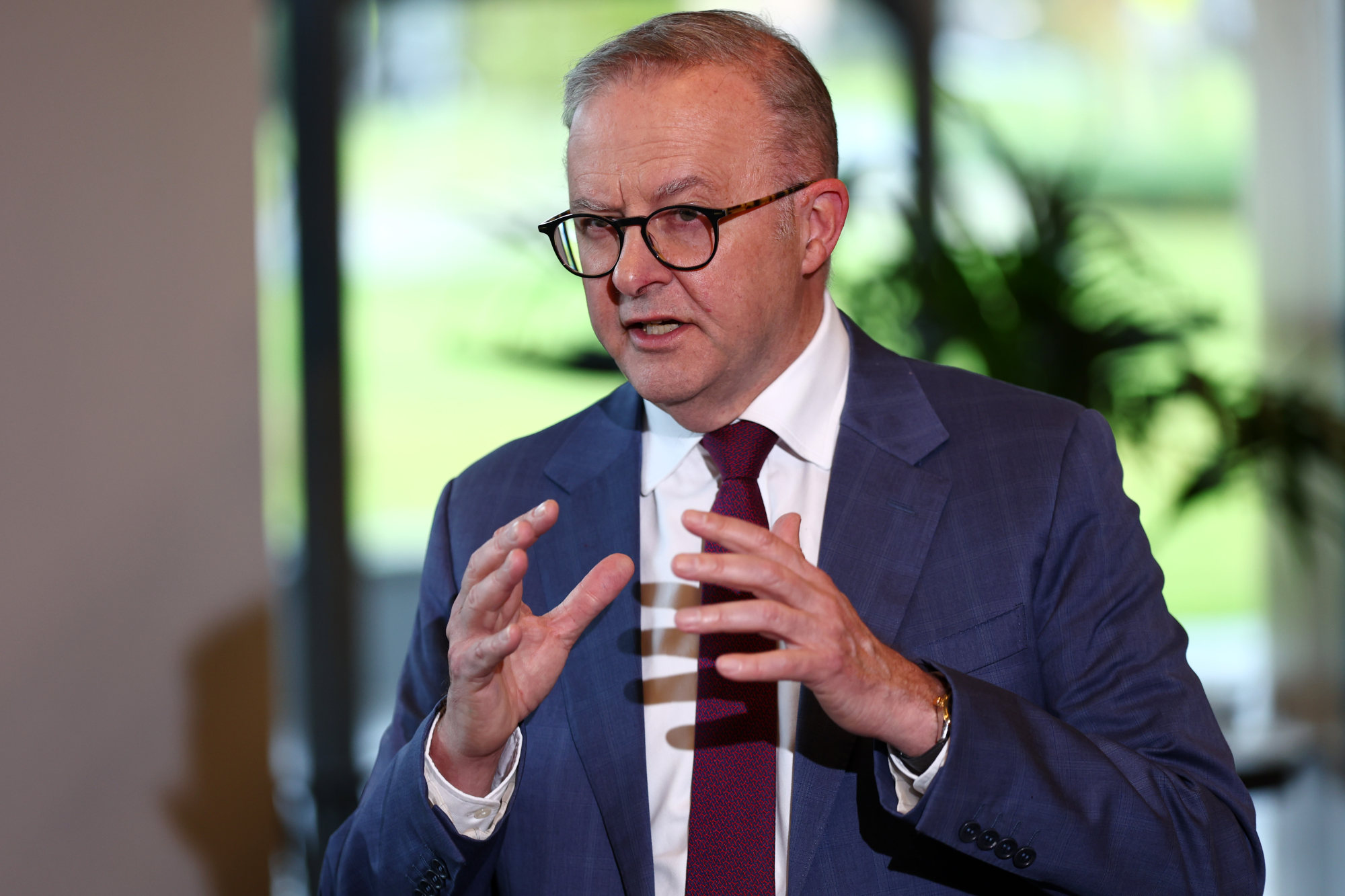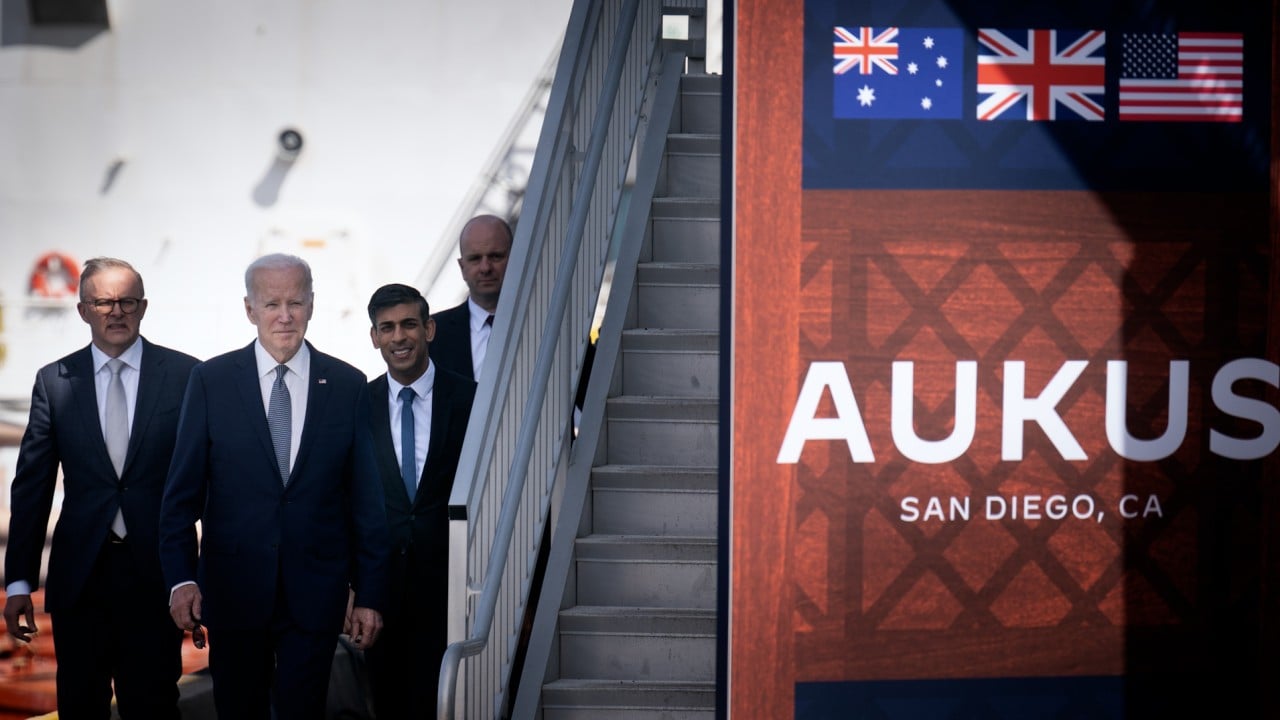
Aukus fallout: Australia denies Japan poised to formally join security pact
- Tokyo’s involvement would be limited to cooperation on developing advanced technologies, Australian Prime Minister Anthony Albanese said on Tuesday
- The United States has previously raised the possibility of involving other nations, including Japan and New Zealand, in the trilateral security pact
Aukus trio ‘set for talks on bringing in new members’ to deter China
“If there can be gains that are in the interests of the three Aukus partners but in addition any partners outside the direct Aukus relationship, then that will be considered,” Albanese said, adding Japan was a “natural candidate” to work on such projects.
“What is not proposed is to expand the membership of Aukus.”

The first stage, or “pillar”, aims to deliver nuclear-powered attack submarines to Australia. The second pillar is focused on sharing military technology and cooperation in areas including quantum computing, artificial intelligence and cyber technology.
Defence Minister Richard Marles said at the same press conference that Aukus is more a technology sharing relationship than a defence alliance.
Canberra worries adding a fourth country to the alliance would complicate and take attention away from the already difficult task of acquiring nuclear-powered submarines, according to a diplomatic source.
It’s fair to say that Japan has taken some of those steps, but not all of them
A Japanese government official said on Monday discussions about formally joining the alliance would likely not be welcomed by Australia or Britain until they had concrete results from the pact.
“Talking about increasing the number of members when nothing’s been achieved with Aukus yet would only disrupt the framework of cooperation that is meant to be its basis,” said the official, who agreed to speak on condition of anonymity.
Even in the absence of political obstacles, officials and experts say Japan needs to introduce better cyber defences and stricter rules for guarding secrets before it can be incorporated in the pact.
Earlier, Marles and his US and UK counterparts had issued a joint statement highlighting the potential for working with Tokyo.
“Recognising Japan’s strengths and its close bilateral defence partnerships with all three countries, we are considering cooperation with Japan on Aukus Pillar II advanced capability projects,” they said.
The summit on Wednesday is expected to address Japan’s possible future involvement in pillar two projects.
China ‘gravely concerned’ about reports Japan could join Aukus security pact
US Deputy Secretary of State Kurt Campbell, a key architect of Washington’s Indo-Pacific policy and a proponent of wider involvement in Pillar II of Aukus, said last week the US was encouraging Japan to do more to protect intellectual property and hold officials accountable for secrets.
“It’s fair to say that Japan has taken some of those steps, but not all of them,” Campbell said.



